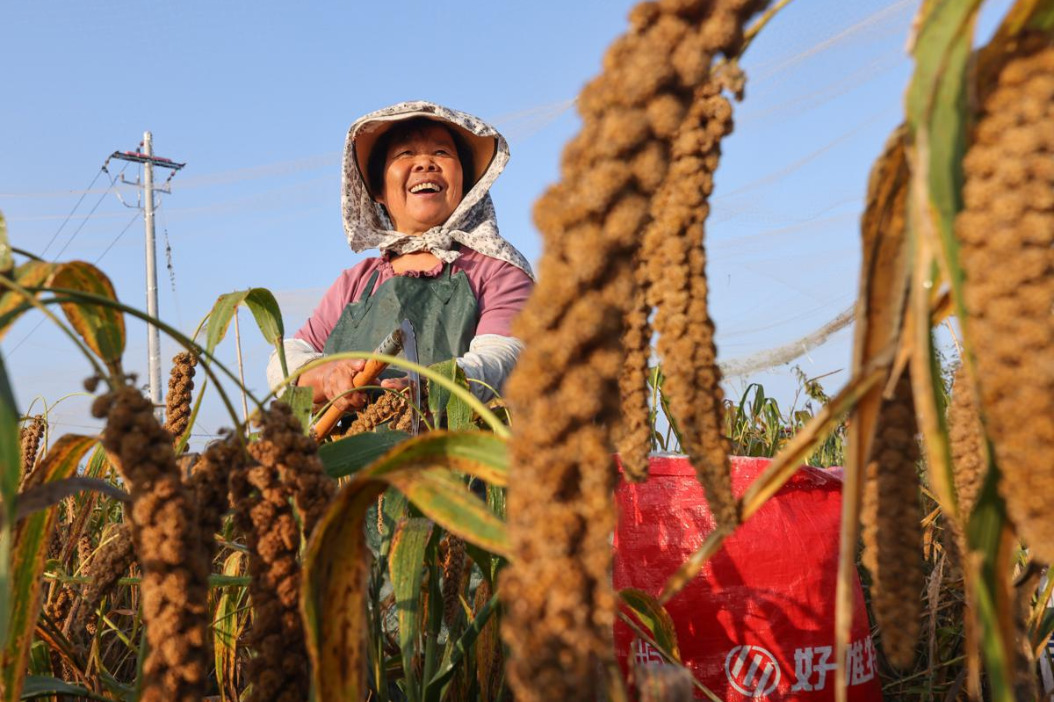Chinese researchers employ space-breeding to cultivate new rosa roxburghii varieties

GUIYANG -- Chinese researchers have cultivated new varieties of rosa roxburghii from 528 plantlets growing from 28.2 grams of seeds that had been aboard the Shenzhou XV manned spaceship in space for 186 days.
Rosa roxburghii, or Cili, meaning "thorn pear" in Chinese, is a yellowish, spiny fruit renowned for its rich vitamin C content and various nutritional benefits.
For the first time, researchers obtained four plantlets with distinctive shapes, two of which are thorn-free and have markedly different leaf shapes compared with typical thorn pears, according to local authorities in Qiannan Buyi and Miao autonomous prefecture, Southwest China's Guizhou province.
The acquisition of new germplasm is of great value to the selection and breeding of thorn-free pear varieties. To shorten the breeding process, researchers are adopting certain methods to reproduce the plantlets while carrying out tissue culture experiments on thorn-free varieties, said researcher Tian Hualin.
This new batch of germplasm will be included in the local thorn pear germplasm bank. A space breeding base of thorn pears will be established to promote the innovation of its germplasm resources.
- China Focus: China's intelligent river governance draws global attention
- Major cultural landmark opens in Xiong'an New Area
- Intl fishing competition attracts 1,200 athletes from 21 countries
- Across China: Climate change in China's arid northwest draws academic, public attention
- China Focus: Chinese scientists propose excess 40Ar in lunar soil possibly from Earth wind
- Chinese team achieves breakthrough in multiple drone flight against challenging winds





































